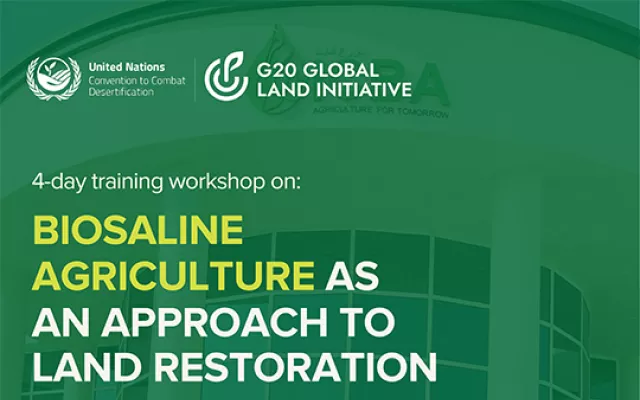The cost of neglect - agriculture, rural transformation and development
3 March 2015
It is self-evident that agriculture and rural development contribute to food and nutrition security, but it is often forgotten that they also provide a pathway to employment, wealth creation and economic growth, and are a necessary precursor for global peace and security. Research for development is essential. There is evidence that every dollar spent on agricultural research generates US$9 in additional food for developing countries. It is particularly important in dryland areas in this era of climate change.
Dr. Kanayo Nwanze, President of the United Nation’s International Fund for Agricultural Development (IFAD), explored today in his seminar, at the International Center for Biosaline Agriculture in Dubai, the cost of neglect of agriculture. He highlighted the importance of agriculture and research for development and outlined IFAD's experiences in helping poor rural people increase food production while conserving water and building resilient food systems.
“ICBA and IFAD have long shared an understanding that water is a precious resource. It is particularly valuable in drylands, where ICBA focuses, and in the fragile areas where IFAD does most of its work. Indeed, 61% of IFAD projects have a water component,” said Dr. Nwanze.
For more than a decade, IFAD and ICBA have worked together on projects that help smallholder farmers improve their productivity and resilience. With climate change now threatening agricultural systems the world over, our work has taken on a new urgency.
The world can no longer afford to ignore agriculture for development. Its persistent neglect has created a world where more than 800 million people suffer from chronic under-nutrition; a world where 160 million children younger than five are stunted.
This is, of course, a humanitarian disaster. But it is also an economic one with a huge cost to global economies.
Adults who are under-nourished cannot fully contribute to their local or national economies. And children who are stunted never achieve their potential as adults. When these children reach working age, the income gap between them and their better-nourished counterparts is $125 billion, every year.
The benefits of pro-poor research do not stop there. To take one example, Oman and the Emirates are benefiting today from salinity-resistant forage plants that were developed through ICBA research that IFAD supported.
The research helped raise the incomes of poor people, but it has also helped farmers in wealthier arid and semi-arid nations.
Yet investment in agricultural research and development continues to lag. According to IFPRI, spending needs to increase at least 5% a year over the next decade for low and middle-income countries to meet the post-2015 development goals.










